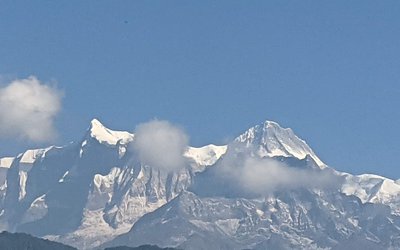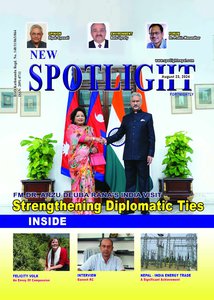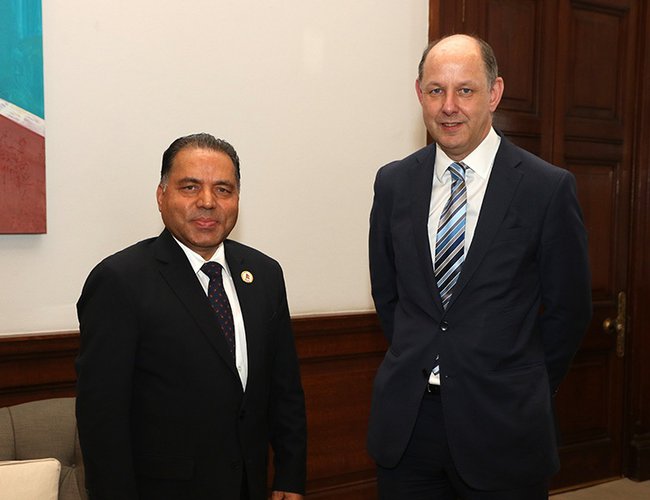
The commemoration of the treaty's 100th anniversary is a significant milestone for both nations. The recent celebration of the 100th anniversary of the signing of the 1923 treaty between Nepal and the United Kingdom in London was organized by Nepal and the United Kingdom.
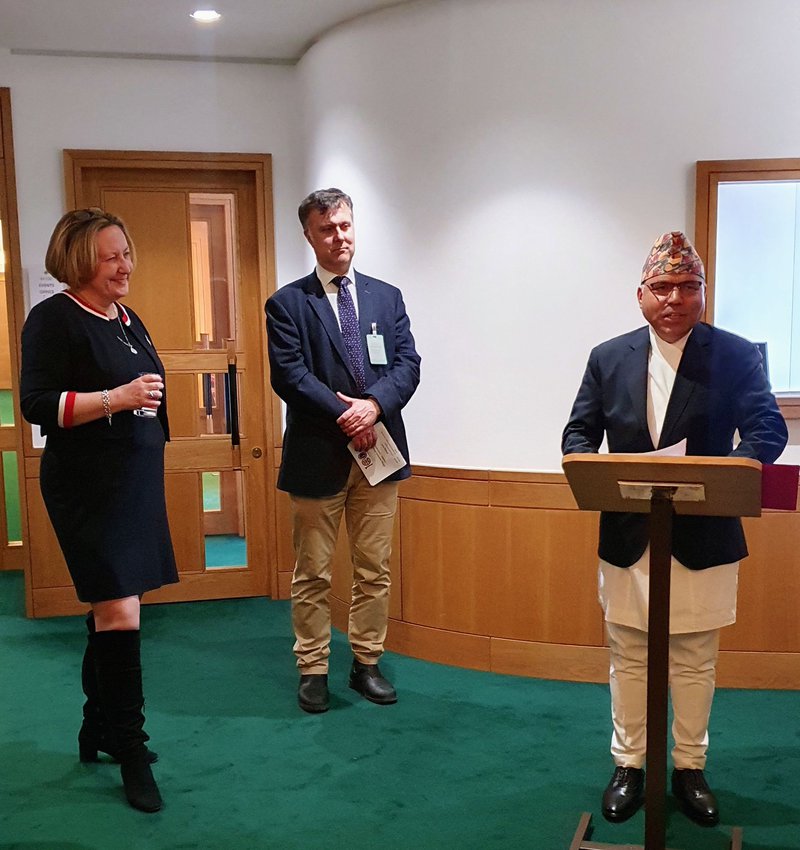
One of the main parts of the treaty was that it recognized Nepal as an independent and sovereign country to conduct foreign policy and decide defense matters. Although there are certain restrictions, the treaty termed two countries equal and sovereign. This was what then prime minister Chandra Sumsher aspired for
It will never be common for a carrier diplomat to be present at significant historical events. It gives him or her great pride to represent Nepal as the principal guest on such a momentous occasion. Bharat Raj Paudyal, the foreign secretary, recognized this opening.
Foreign Secretary Paudyal made this past week in London, and this week, foreign minister NP Saud will also have the historic opportunity to attend King Charles III's coronation.
Recently, an exhibition was put on by the British Library, the Nepalese Embassy in London, and the UK's Foreign, Commonwealth, and Development Office to mark the 100th anniversary of the Nepal-UK Friendship Treaty.
At the exhibition hosted at the Library, historical records, manuscripts, pictures, philatelic items, and other historical objects linked to Nepal-UK connections were on show.
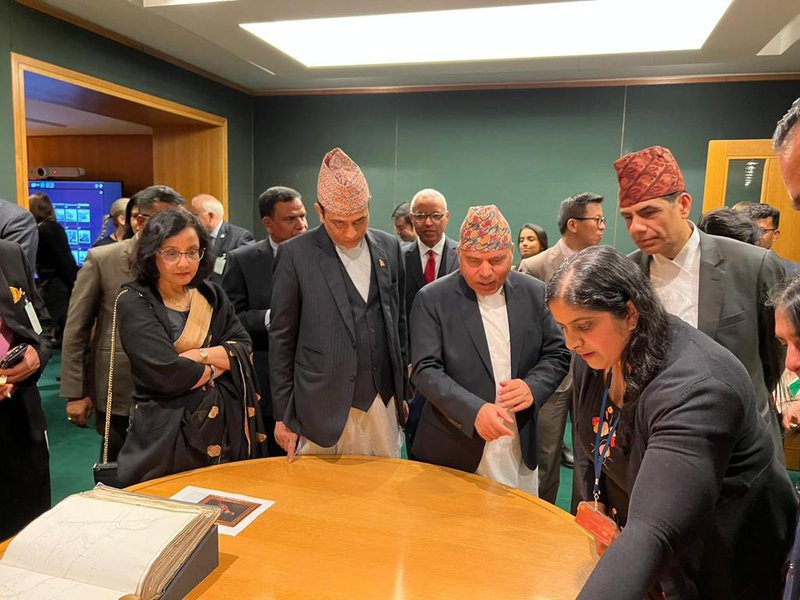
The friendship treaty, signed in 1923, served as a basis on which the relationship between Nepal and the UK developed, according to a statement released by the Nepali Embassy in the UK. Secretary in the Ministry of Foreign Affairs Bharat Raj Paudyal addressed at the event. He said that the two countries bilateral ties had grown to include development partnerships, trade and investment, tourism, British Gurkhas, and inter-ethnic ties, as well as collaboration in multilateral fora on issues of shared interest.
Paudyal was grateful for the British Library's assistance in conserving, safeguarding, and digitizing historical documents, images, books, and other priceless items in Nepal.
According to a press release from the embassy, the United Kingdom will continue to support Nepal in achieving sustainable economic development and in moving out of the category of least developed countries. This statement was made by the Minister of State in the Foreign, Commonwealth and Development Office of the UK, Anne-Marie Trevelyan.
In honor of the 100th anniversary of the Nepal-United Kingdom Treaty of Friendship, the Foreign, Commonwealth and Development Office of the United Kingdom and the Embassy of Nepal in London organized an exhibition and reception at the British Library that evening, April 25, 2023.
During the event, historical records, manuscripts, pictures, philatelic items, and other artifacts linked to Nepal and the relationship between Nepal and the UK were displayed.
Bharat Raj Paudyal, the foreign secretary, spoke at the event and emphasized how the 1923 Friendship Treaty laid the groundwork for the development of the Nepal-UK relationship during the previous 100 years.
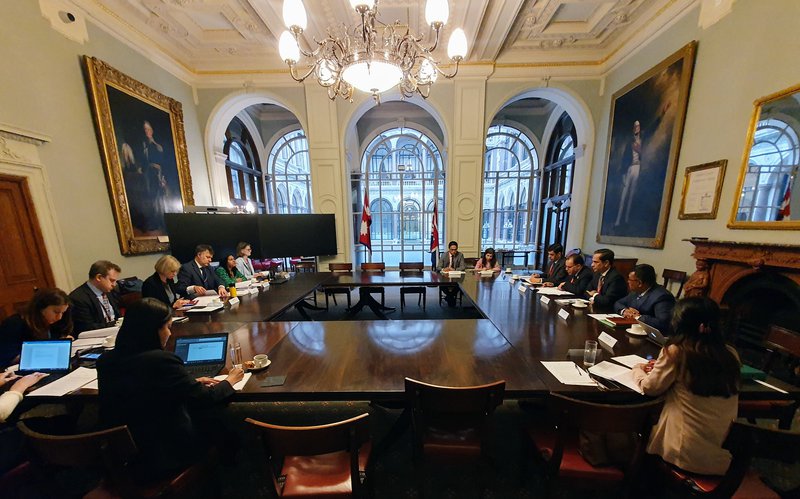
According to the Foreign Secretary, these ties have greatly broadened in recent years to include cooperation on issues of shared interest in multilateral fora, development partnerships, trade and investment, tourism, the British Gurkhas in the diaspora, and other people-to-people ties. He was grateful for the help the British Library has given in Nepal in saving, guarding, and digitizing historical manuscripts, photos, monographs, and other priceless items.
According to a press release from the Embassy of Nepal in London, Ms. Anne-Marie Trevelyan, Minister of State in the Foreign, Commonwealth, and Development Office of the United Kingdom, said that the country would continue to assist Nepal in achieving sustainable economic development and shedding its designation as a least developed country, including through priority areas of trade and investment.
Gyan Chandra Acharya, the ambassador of Nepal to the UK, and Xerxes Mazda, the head of the British Library's collections, both spoke at the event.
The Nepal-Britain Treaty was originally debated in 1921, and it was officially signed in Singha Durbar on December 21, 1923. The pact, which was hailed as "a great achievement of Chandra Shumsher's diplomacy's 25 years," was the British government's first official admission that Nepal, as an independent country, had the right to conduct its foreign policy however it saw proper. The League of Nations noted the accord in 1925. The degree of Nepal's independence had been rendered irrelevant by the Sugauli Treaty of 1816. The treaty's sixth, seventh, and eighth points were same.
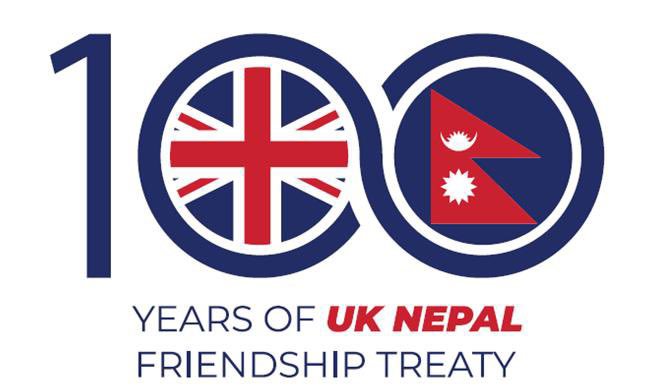
Nepal and the United Kingdom have been traveling together for more than 200 years, sharing worries and offering support when things become tough. British East India Company recognized Nepal's status as a nation freed from Chinese suzerainty imposed upon it after signing the 1793 treaty by formally signing the 1816 treaty.
According to former foreign secretary professor Bishwa Pradhan, with a few exceptions, the 1923 pact continued the terms of the 1816 treaty. Pradhan claims that the 1923 treaty sets Nepal apart from other Princely States of India in his book Diplomatic Strategy for Nepal. However, the majority of the pact's wording was lifted verbatim from a treaty from 1816. He also believes that numerous articles from the 1923 pact were completely copied into the 1950 accords between India and Nepal.
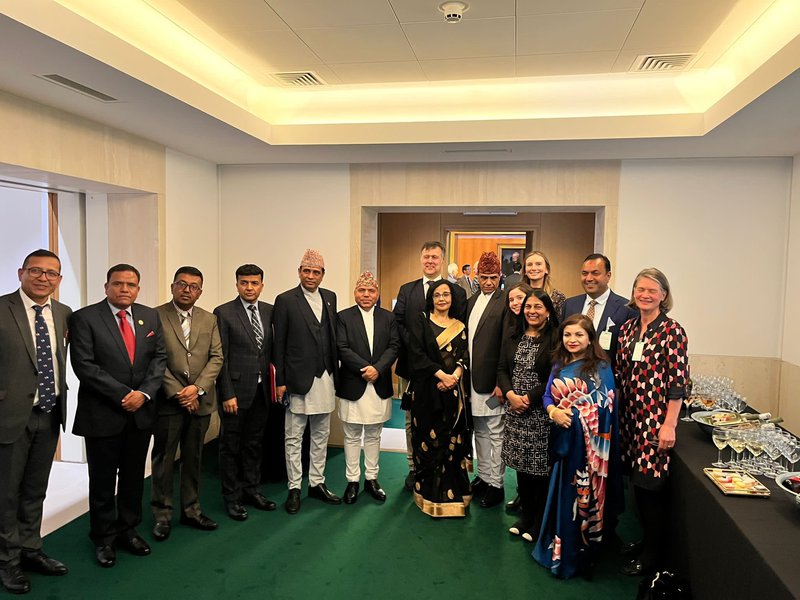
Whatever significance the 1923 contract between Nepal and the UK may have had in terms of its text and spirit, it handed Nepal its independence. The country must commemorate the treaty's centennial signing.
The purpose of the treaty, according to Kanchanmoy Mojumdar's book Political Relations Between India and Nepal, is to formally implement the treaty of 1816 between states. According to Mojumdar, the pact was written to guarantee Chandra Sumsher's demand that he demonstrate his uniqueness from other British Princely states.
Whatever the debates over the 1923 treaty, it has historical significance that the two nations are honoring its signing 100 years later.
- DASHAIN FESTIVAL : Festival of Unity
- Oct 04, 2024
- NEPAL-CANADA Bilateral Meeting
- Oct 04, 2024
- MIDDLE BHOTEKOSHI: Final Stage
- Sep 23, 2024
- UDIPUR SUBSTATION: Improve Quality Of Distribution
- Sep 19, 2024
- EK NARYAN ARYAL: Chief of Civil Service
- Sep 16, 2024












